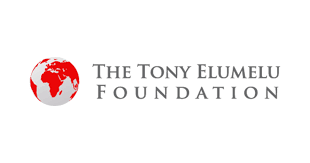Are you looking for a challenging and rewarding job opportunity as an Executive Assistant in Australia? If you have excellent organizational and communication skills, as well as experience in managing multiple priorities and working in a fast-paced environment, then this might be the job for you.
Responsibilities of an Executive Assistant
1. The role of an Executive Assistant is critical to the success of any organization. Executive Assistants provide support to senior executives, including CEOs, CFOs, and other high-level managers. The responsibilities of an Executive Assistant include
2. Managing schedules and calendars: Executive Assistants are responsible for managing the schedules and calendars of senior executives, which can include setting appointments, scheduling meetings, and coordinating travel arrangements.
Advertisement
3. Handling correspondence: Executive Assistants are often the first point of contact for external stakeholders, so they must be able to handle correspondence in a professional and timely manner.
4. Preparing reports and presentations: Executive Assistants may be responsible for preparing reports and presentations for senior executives, which can involve gathering data, conducting research, and creating visual aids.
5. Managing budgets: Executive Assistants may be responsible for managing budgets, including tracking expenses, reconciling accounts, and preparing financial reports.
6. Conducting research: Executive Assistants may be required to conduct research on behalf of senior executives, including market research, competitor analysis, and industry trends.
Skills Required for an Executive Assistant Job Vacancy
To be considered for an Executive Assistant job vacancy in Australia, you will need to possess a unique blend of skills and expertise. Here are some of the key skills and tools that are essential for this role:
Communication: Executive Assistants must have excellent communication skills, both written and verbal, and be able to communicate with a wide range of stakeholders, including senior executives, clients, and external partners.
Organization: Executive Assistants must be highly organized and able to manage multiple priorities simultaneously.
Attention to detail: Executive Assistants must be detail-oriented and able to identify and correct errors in correspondence, reports, and other documents.
Technology: Executive Assistants must be proficient in using technology, including email, calendar software, and Microsoft Office.
Interpersonal skills: Executive Assistants must have strong interpersonal skills and be able to work effectively with a wide range of people, including executives, colleagues, and external stakeholders.
Career Prospects of an Executive Assistant Job Vacancy
The demand for Executive Assistants in Australia is growing, with many businesses recognizing the critical role that these professionals play in supporting senior executives. According to Payscale, the average salary for an Executive Assistant in Australia is $71,000 per year. The demand for Executive Assistants is particularly high in industries such as finance, healthcare, and technology.
Conclusion
If you’re looking for a challenging and rewarding job opportunity in Australia, an Executive Assistant position might be the right fit for you. The role of an Executive Assistant involves providing support to senior executives, including managing schedules, handling correspondence, preparing reports, and conducting research. To be successful in this role, you will need to possess excellent communication and organizational skills, as well as attention to detail and proficiency in technology. The demand for Executive Assistants in Australia is growing, making it an exciting career opportunity.






